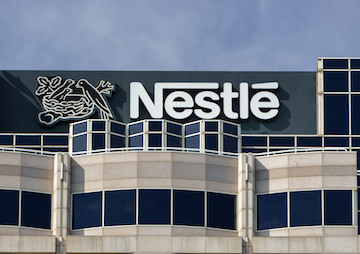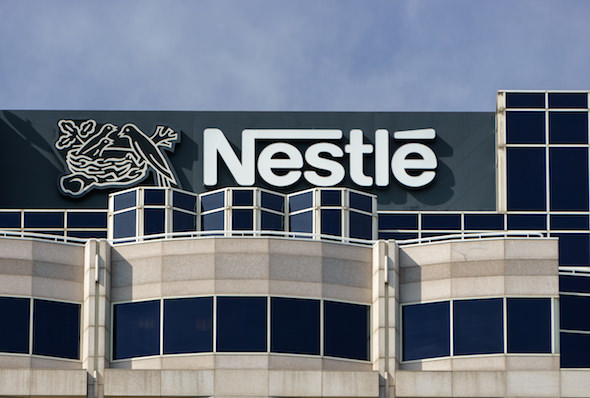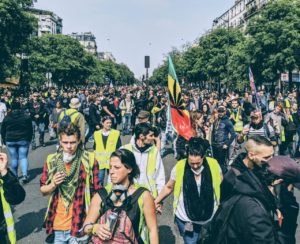Nestle’s Self-Policing Policy Against Slave Labor Smells Like a PR Campaign
The food giant's unsuccessful effort to beat back a lawsuit may have been part of an effort to avoid fully facing up to ties to child slavery, critics suggest.

A Nestle USA corporate building in Glendale, Calif. (Ken Wolter / Shutterstock)
Last month the Nestle company, along with Cargill and Archer Daniels Midland, failed to get the U.S. Supreme Court to throw out a lawsuit seeking to hold them liable for the alleged use of child slaves in cocoa farming in the African nation of Ivory Coast.
The high court’s refusal to take up an appeal by the three commercial giants comes after Nestle admitted in 2015 that it had bought materials from Thailand produced on the backs of forced labor. In reporting that it had unknowingly used such products, the company said it was entering a new era of self-policing.
However, a report in The Guardian newspaper on Monday suggests that Nestle’s self-regulating policy may be more a PR campaign than a true effort to have a legal workforce. The article notes that “the company [is] in the unfortunate position of disclosing slavery in one part of its operations, while at the same time fighting through the courts to fend off accusations that it exists in another—more profitable—part of its business.”
The Guardian goes on to say:
Andrew Wallis, chief executive of Unseen UK, an anti-trafficking charity advocating for more supply chain accountability, said: “For me there is a big issue with one part of Nestlé saying, ‘OK we have been dragged along with everyone else to face the issue of slavery in Thailand and so let’s take the initiative and do something about it’, and at the same time fighting tooth and nail through the courts to avoid charges of child slavery in its core operations in the Ivory Coast.”
He argues that Nestlé’s self-reporting could also be seen as a tactic to head off or deflate other pending civil litigation suits.
“It’s easy to own up to something that has already been uncovered,” he says. “By the time Nestlé owned up to slavery in the Thai seafood industry it was accepted knowledge. It’ll be a brave new world when companies are actually doing the real investigation to probe into part of their supply chains that have remained outside the public domain.”
that slave labor was “being used in Asia in the production of seafood sold by major US, British and other European retailers.” The article spoke of workers being subjected to “20-hour shifts, regular beatings, torture and execution-style killings” and added: “Some were at sea for years; some were regularly offered methamphetamines to keep them going. Some had seen fellow slaves murdered in front of them.”
Atrocities like these will not end until consumers refuse to buy the products of the companies responsible.
— Posted by Donald Kaufman.
Independent journalism is under threat and overshadowed by heavily funded mainstream media.
You can help level the playing field. Become a member.
Your tax-deductible contribution keeps us digging beneath the headlines to give you thought-provoking, investigative reporting and analysis that unearths what's really happening- without compromise.
Give today to support our courageous, independent journalists.






You need to be a supporter to comment.
There are currently no responses to this article.
Be the first to respond.